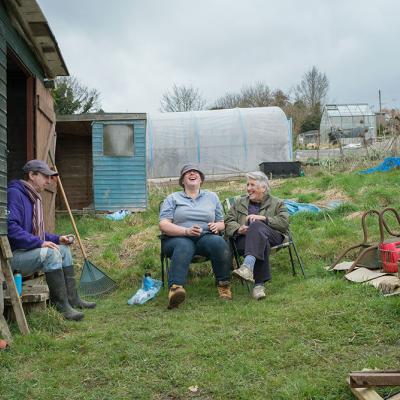Webinar: A national measure of health: exploring the ONS Health Index
19 January 2021

Good health is not simply an output of a fair economy. A healthy population is one of the nation’s most important assets: a vital input into a strong economy that improves people’s wellbeing, their productivity and their ability to participate in society. But how do we measure the health of the nation?
The ONS has launched an 'experimental version' of its health index, which was proposed in 2018 by the then Chief Medical Officer (CMO) Dame Sally Davies, and it is currently open for public consultation before being finalised in 2021.
The ONS Health Index not only measures how healthy people are today but also looks at the wider social and economic circumstances that will influence our ability to live healthy lives in the future.
The ONS Health Index, as proposed:
- uses a broad definition of health, including health outcomes, health-related behaviours and personal circumstances, and wider determinants of health that relate to the places people live, such as air pollution
- provides a single value for health showing how health changes over time and can be broken down to focus on specific topics to show what is driving these changes
- provides a measure of health for local authority areas (upper tier) and enables comparison between areas.
However, if the new health index is to make a real difference, it will need to be supported by structures that embed consideration of implications for people’s health within key decision-making processes and have strong cross-party and public support.
Our webinar on Tuesday 19 January 2021 explored the index, why it was commissioned, and how it can be used in practice.
Speakers
Jo Bibby is Director of Health at the Health Foundation.
Jo is responsible for developing and leading the Foundation’s healthy lives strategy to address the wider social and commercial determinants of health.
Joining the Foundation in November 2007, Jo initially led the development of the Foundation’s influential portfolio of work on patient safety and person-centred care. Jo has worked in health care at local and national levels for 25 years, including 10 years at the Department of Health. As Head of NHS Performance, she oversaw the implementation of the policy agenda set out in the NHS Plan. At the NHS Modernisation Agency, Jo led an international quality improvement initiative – Pursuing Perfection.
Before joining the Foundation, Jo was the Director for the Calderdale and Kirklees Integrated Service Strategy, where she led a major service reconfiguration programme to deliver improvements in quality, safety and patient experience.
Between June 2013 and March 2017, Jo served as a Non-Executive Director of Salford Royal NHS Foundation Trust.
Jo has a PhD in medical biophysics.
Dame Sally Davies is UK Special Envoy on Antimicrobial Resistance. Before this, she was Chief Medical Officer (CMO) for England and Chief Medical Adviser to the UK government from March 2011 to September 2019, having held the post on an interim basis since June 2010. Dame Sally advocates globally on AMR.
She has spoken on AMR at numerous events including the World Health Assembly side events, the G8 science ministers’ meeting in 2015, the Global Health Security Initiative in 2015, and the UN General Assembly side event in 2016. She was chair of the 2013 AMR forum at the World Innovation Summit for Health (WISH) and was for three years the chair of the WHO Strategic and Technical Advisory Group on AMR.
Most recently, Dame Sally was a co-convener of the UN Inter-Agency Co-ordination Group on AMR, set up in response to the AMR declaration made at UNGA 2016 and has now been appointed by the UN to the Global leaders group on AMR. Dame Sally was a member of the World Health Organization (WHO) Executive Board 2014-2016 and has led delegations to a range of WHO summits and forums since 2004.
Jonathan Pearson-Stuttard is a Public Health Doctor and Epidemiologist at Imperial College London and studies trends in chronic diseases such as diabetes and obesity, specifically how these conditions increase the risk of several others and how that impacts patients, populations and health systems. This research has been published in leading journals such as Nature, the Lancet journals and the British Medical Journal.
Jonathan previously worked in the Department for Health & Social Care as Editor-in-Chief of the Chief Medical Officer’s 2018 Annual Report covering a range of health issues and recommendations - from the development of a Composite Health Index and more funding for Multimorbidity research to frameworks for regulation and evaluation of emerging technologies such as artificial intelligence.
Jonathan is also Vice-Chair of the Royal Society for Public Health and Head of Health Analytics at Lane Clark & Peacock and comments regularly in the media on a range of health issues.
Dr Muna Abdel Aziz is the Director of Public Health for Salford, and previously the Director of Public Health in Warrington.
Muna has a medical degree and first started her career in public health in Sudan in 1992 as an academic.
She completed her MD in Sudan, PhD from Cambridge, and she is professionally accredited as a specialist in public health in both countries.
Together with leaders across the city, the partners in Salford are working together to tackle inequalities during COVID, recognising that for Salford ‘Now is the Time to Act’.
Further reading
Work with us
We look for talented and passionate individuals as everyone at the Health Foundation has an important role to play.
View current vacanciesThe Q community
Q is an initiative connecting people with improvement expertise across the UK.
Find out more

